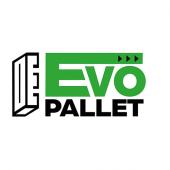Recyclable packaging: Nestlé ’s progress
The group has achieved important milestones. Work is continuing on the reduction of packaging, reuse and refilling systems and alternative materials.
Nestlé’s commitment to improving the recyclability of its packaging and recycling infrastructures continues. In Europe the food giant has achieved the important milestone of 95% of packaging of its own products being designed for recycling. With regards to plastic packaging at European level, almost 83% of that used is already conceived for being recycled, and in the last 5 years the group has managed to reduce the use of virgin plastic by 33%.
Nestlé is focusing on the development of packaging that uses less raw material, on lightening and eliminating covers, accessories, unnecessary layers of plastic and film while ensuring, at the same time, food safety. The Group continues to experiment the use of reuse and refilling systems that involve the distribution of loose products and reusable packaging. In addition, it is gradually eliminating packaging that is not widely recycled and studying solutions that involve alternative materials such as those in paper.
“We are making progress in the reduction of our packaging, in making it more recyclable, and in the use of renewable or recycled materials” - declared Antonia Wanner, Nestlé Head of ESG Strategy and Deployment – “But we want to take a further step, making our contribution for the construction of waste management infrastructures, supporting the harmonization of regulations and a commitment to respecting the human rights of workers in the sector”.
Specifically, there are various projects that Nestlé has implemented at European level to increase the circularity of its packaging. In Europe all KitKat packaging is designed to be recyclable, while in the UK, besides converting Quality Street sweets and Smarties to paper packaging, it is investing 7 million pounds for a new recycling plant intended for processing flexible plastic. Its opening is planned for the end of 2024 in Durham.




















